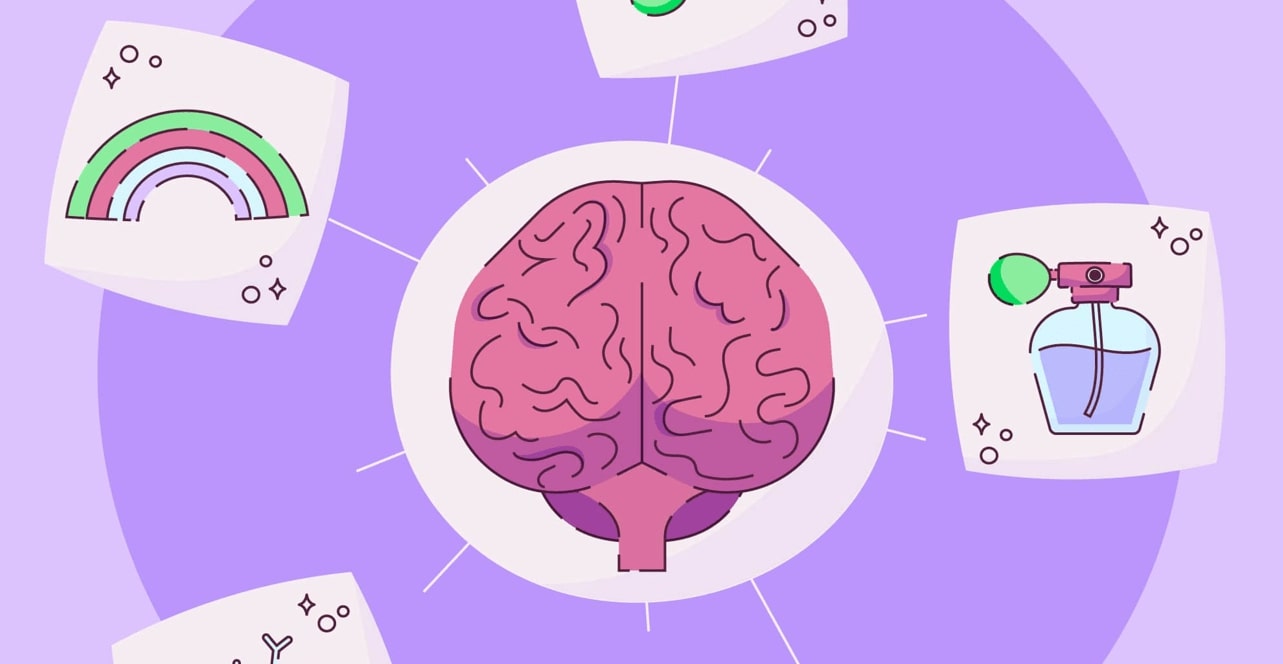Best Learning Games for Kids That Actually Teach Something

Let’s be real - a lot of so-called “educational games” for kids are just flashy distractions. Bright colors, happy music, and zero real learning. But there are learning games that actually teach kids useful skills like problem-solving, logic, memory, and focus - and they make it fun.
This guide lists the best learning games for kids that truly build their brains. Whether you want math, memory, reading, or creative thinking, these are the games that actually make a difference. We’ll also show how Moadly, a brain training app for all ages, helps kids learn smarter, not harder.
Why Learning Games Work
Kids learn best when they’re having fun. Games combine challenge, feedback, and reward - the perfect mix for motivation and memory. Here’s why they work so well:
- Immediate feedback: Kids know right away if they got something right or wrong
- Active participation: They’re doing, not just listening
- Progress tracking: Leveling up keeps them engaged
- Brain activation: Puzzles and challenges light up critical thinking areas
But not every “educational” game does this. Many focus on entertainment instead of skill-building. The games below are different - they’re fun, effective, and backed by learning science.
1. Moadly – Smart Brain Training for Kids
Moadly is a brain training app that helps kids (and adults) improve memory, attention, and logical thinking. It’s not a cartoon-style kids game - it’s a fun, challenge-based app that grows with the player.
Moadly’s short, engaging activities help train real-world cognitive skills. Kids learn to focus, think faster, and solve problems - skills that boost performance in school subjects like math and reading.
| Feature | Why It’s Great for Kids |
|---|---|
| Short 1–3 minute challenges | Perfect for short attention spans |
| Adaptive difficulty | Grows with the child’s skill level |
| Focus and memory training | Improves school learning and retention |
| No ads or distractions | Safe, focused environment |
If you want your child to build a sharper, more focused mind, Moadly is one of the few free apps that truly delivers meaningful results. It’s available on web and mobile, and you can track daily progress easily.
2. Prodigy Math Game
Best for: Math practice that feels like an adventure.
Prodigy turns math problems into an RPG-style quest. Kids create characters, explore worlds, and battle using math skills. It covers curriculum-based math for grades 1–8, and adapts to each child’s level automatically.
- Custom avatars and fantasy battles keep kids motivated
- Parents and teachers can track progress
- Free to play, with optional upgrades
Kids often forget they’re doing math because the gameplay is genuinely fun. It’s great for improving speed, accuracy, and confidence with numbers.
3. Osmo – Hands-On Learning Games
Best for: Younger kids who learn by touching and seeing.
Osmo uses physical pieces and an iPad camera to turn real-world play into digital learning. It blends STEM, art, and logic in a way that feels magical. Kids draw, spell, build shapes, and code by manipulating objects in front of the screen.
- Great for visual and kinesthetic learners
- Games for coding, spelling, math, and creativity
- Encourages collaboration and critical thinking
Osmo is perfect for early learners (ages 4–10) who need tangible interaction to grasp new concepts.
4. BrainPOP Games
Best for: General learning and curiosity.
BrainPOP has educational games tied to school subjects - science, social studies, English, and math. The games are paired with short animated videos, so kids understand the concept before playing.
- Great mix of learning and fun
- Strong educational value for classroom or home
- Content designed by educators
It’s especially good for curious kids who love to explore new topics or need help connecting abstract lessons to real-life applications.
5. DragonBox Series
Best for: Teaching math concepts visually.
DragonBox makes algebra and geometry accessible to kids through visual puzzles. Instead of formulas, kids manipulate shapes and patterns, learning the logic behind math naturally.
- Teaches complex math without feeling like “school”
- Ideal for ages 6–12
- Recommended by teachers worldwide
By the time kids reach higher grades, they already understand key concepts like equations and symmetry, thanks to the intuitive design of DragonBox games.
6. Scratch
Best for: Learning to code creatively.
Scratch, created by MIT, teaches kids how to code by letting them build their own interactive stories, games, and animations. It’s visual, drag-and-drop, and endlessly creative.
- No typing required - perfect for beginners
- Teaches logic, sequencing, and computational thinking
- Community of creators for sharing projects
Kids learn real computer science concepts like loops, variables, and logic flow without feeling overwhelmed. It’s perfect for 7–14-year-olds.
7. Toca Boca Games
Best for: Creativity and imagination in younger children.
Toca Boca’s apps focus on open-ended play. Whether it’s running a kitchen, styling hair, or exploring nature, these games encourage curiosity and storytelling instead of scoring or competition.
- Safe, ad-free, and simple to play
- Teaches independence and problem-solving
- Ideal for ages 3–8
Toca Boca games are perfect for developing emotional intelligence and social skills through pretend play.
8. Moadly Mini Challenges (Focus Games)
For kids who get easily distracted, short bursts of focus training work wonders. Moadly includes focus-based mini games designed to strengthen attention span and working memory. These games challenge kids to stay concentrated under time pressure - a skill that directly improves classroom performance.
- Simple but mentally stimulating
- Improves recall, reaction time, and focus
- Quick enough to fit into daily screen time
It’s the perfect balance of fun and functionality - a rare combo in kids’ apps.

9. Duolingo
Best for: Learning new languages through play.
Duolingo’s gamified approach makes learning a new language addictive. Kids earn rewards, level up, and practice through mini games. Each session is only a few minutes long, but the repetition and interactivity make language retention strong.
- Fun daily streaks motivate consistency
- Supports dozens of languages
- Great for kids 8+
Parents can join in too - it’s a great way to bond while both learning something new.
10. Lightbot
Best for: Introducing programming logic.
Lightbot uses puzzle-solving to teach coding logic. Kids guide a little robot to light up tiles using commands, loops, and conditionals - the basics of computer programming. It’s an excellent early introduction to algorithmic thinking.
- Great for ages 5–12
- Builds logical reasoning skills
- Teaches complex ideas in a simple visual way
It’s a smart choice for parents who want to encourage STEM learning without overwhelming their child.
11. Thinkrolls
Best for: Logic, memory, and physics puzzles.
Thinkrolls combines adorable characters with problem-solving puzzles that teach cause and effect, sequencing, and spatial reasoning. Each level introduces a new mechanic, such as balance, gravity, or timing.
- Engaging and age-appropriate for 4–9-year-olds
- Promotes persistence and experimentation
- Zero ads or distractions
Kids learn by trial and error, building real resilience while having fun.
12. PBS Kids Games
Best for: Safe, free educational entertainment.
PBS Kids offers hundreds of mini games tied to its educational shows. The games focus on readingmath, science, and problem-solving in a child-friendly interface.
- Trusted, ad-free, and educational
- Familiar characters help kids engage
- New content added often
It’s a great starter platform for younger learners who are just beginning to use screens for education.
13. Moadly for Family Brain Time
Learning is better when it’s shared. Moadly can be played as a family - parents and kids can compete in memory or math challenges together. It’s a healthy alternative to scrolling or random YouTube videos.
Plus, Moadly doesn’t just entertain - it strengthens core cognitive functions for everyone in the house. Better focus, better recall, and better confidence. It’s an app that genuinely teaches something.
| Who | What They Gain |
|---|---|
| Kids (6–12) | Improved focus, memory, and problem-solving |
| Teens | Better academic performance and mental stamina |
| Parents | Mental sharpness and stress relief |
Choosing the Right Game for Your Child
Here’s a quick breakdown to help pickthe right type of learning game based on your child’s age and interests:
| Age Range | Recommended Game Type | Examples |
|---|---|---|
| 3–5 years | Creative play and problem-solving | Toca Boca, Osmo, PBS Kids |
| 6–8 years | Basic logic and memory | Moadly, Thinkrolls, DragonBox |
| 9–12 years | Math, coding, and critical thinking | Prodigy, Scratch, Lightbot |
| 13+ years | Advanced cognitive and focus training | Moadly, Duolingo, BrainPOP |
Final Thoughts
Not all games are created equal. The best learning games for kids balance fun with real educational value. They challenge the brain, encourage curiosity, and teach transferable skills - not just tap-to-win mechanics.
If you’re looking for a game that actually builds your child’s brain, Moadly is one of the best free tools available. It trains focus, memory, and logic in a way that’s enjoyable, safe, and genuinely effective. A few minutes a day is all it takes to see improvement.
Because learning shouldn’t feel like homework. It should feel like play - and with the right games, it does.

